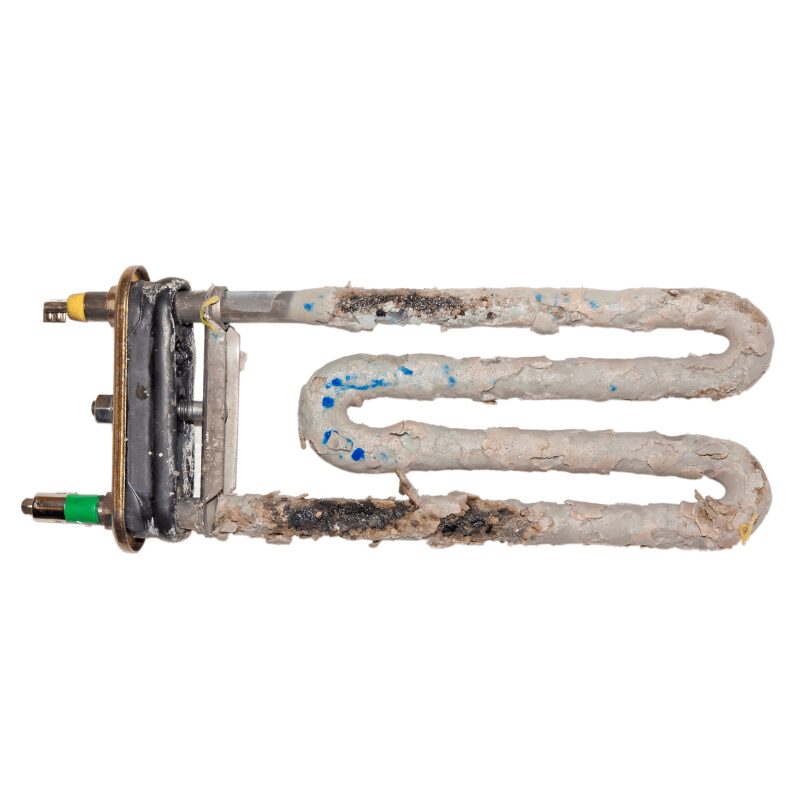There’s something about spring that makes us want to throw open the windows, deep clean every surface, and finally deal with that mystery drawer in the kitchen. But while you’re dusting, decluttering, and planting flowers, there’s one appliance you might be forgetting—and it’s a big one: your water heater.
For most homeowners, the water heater sits quietly in the corner, working around the clock without much fuss. But when it fails? You know it. Cue the freezing showers, sky-high energy bills, or—worst case—water all over your basement floor.
At All Pro Heating, Air & Plumbing, we’re big believers in catching small issues before they snowball. So let’s walk through a few simple springtime maintenance steps that will help your water heater stay reliable, efficient, and ready for anything.
Why Water Heater Maintenance Matters (Especially Now)
Spring is the ideal time to give your water heater a little attention. After a long winter of heavy use, your system could be overdue for a check-up. Plus, with warmer weather ahead—and more guests, laundry, and outdoor activity—your household’s water usage is only going to increase.
Regular maintenance doesn’t just extend the life of your water heater. It can also improve efficiency, reduce your utility bills, and help you avoid sudden breakdowns when you least expect them. The good news? Most of the work is simple, and a quick check-in now can save you major headaches down the road.
Start with a Visual Check
Take a few minutes to inspect your water heater. Look for any signs of rust, corrosion, or water pooling at the base of the tank. These could be early warning signs that something isn’t quite right. While you’re at it, listen for popping or rumbling noises when the tank is heating up—those sounds often point to sediment buildup inside the tank, which can reduce efficiency and wear down your system over time.
Flush Away Sediment Buildup
Hard water is a reality in many Indiana homes, and over time, minerals and debris can collect at the bottom of your water heater. This sediment buildup can act as an insulating layer, forcing your heater to work harder (and use more energy) to heat the water.
Flushing the tank once a year helps clear out the gunk and restores efficiency. It’s not a complicated task, but if you’re unsure or want to avoid a watery mess, our All Pro team is happy to handle it for you.

Check the Temperature Setting
Many water heaters are set higher than necessary right out of the box. Lowering the temperature to around 120°F can help you cut energy costs without sacrificing comfort, and it reduces the risk of scalding, especially in households with kids or elderly family members.
Not sure how to adjust the setting? Most units have a clearly labeled dial, but if you’re dealing with an older system or tankless model, our team can walk you through it or take care of it during a maintenance visit.
Take a Look at the Anode Rod
The anode rod is a small but mighty component that helps prevent rust inside your tank by attracting corrosive elements. Over time, it wears down—and if it’s completely deteriorated, your tank is vulnerable to corrosion from the inside out.
If you’ve never checked the anode rod before, spring is a great time to do it. You’ll want to replace it if it’s corroded or worn thin, which is typically every 3–5 years, depending on your water quality. Again, this is a great job for the pros if you’re not feeling confident tackling it solo.
Insulate for Better Efficiency
If your water heater is located in a chilly basement or garage, adding an insulating blanket can help reduce standby heat loss. Similarly, insulating the first few feet of hot water pipes can make a noticeable difference in how quickly hot water reaches your taps—and how much heat is lost along the way.
It’s an inexpensive fix with long-term energy savings, and our technicians can make sure it’s done safely and properly during a service appointment.

Don’t Forget Tankless Heaters
If you have a tankless water heater, spring maintenance still applies. These systems are often more efficient, but they also need to be flushed annually to remove scale buildup. You’ll also want to clean or replace any air and water filters to keep things running smoothly.
Tankless systems are a bit more complex, so it’s always smart to have a professional give yours a seasonal check-up to catch any small issues early.
The All Pro Approach: Expert Eyes, Reliable Results
We get it—water heater maintenance isn’t exactly top-of-mind when the weather finally turns nice. But a little attention now means fewer surprises later. Whether your unit is brand new or pushing the 10-year mark, regular checkups keep it performing at its best and give you peace of mind.
At All Pro Heating, Air & Plumbing, we specialize in helping homeowners take better care of their homes with honest advice, dependable service, and no upsell nonsense. If you’re not sure when your water heater was last serviced—or if you just want a pro to take a look—we’re happy to help.
Keep the Hot Water Flowing All Season Long
Your water heater works hard, so you don’t have to think about it. And with just a little spring maintenance, it’ll keep your showers hot, your dishes clean, and your energy bills low all season long.
So while you’re busy checking off your spring to-do list, don’t skip over one of the hardest-working appliances in your home. Give it the attention it deserves—and if you’d rather not tackle it alone, let All Pro Heating, Air, & Plumbing take it from here.
Request a quote today at callallproindy.com and let’s get your water heater ready for whatever spring and summer throw your way.

